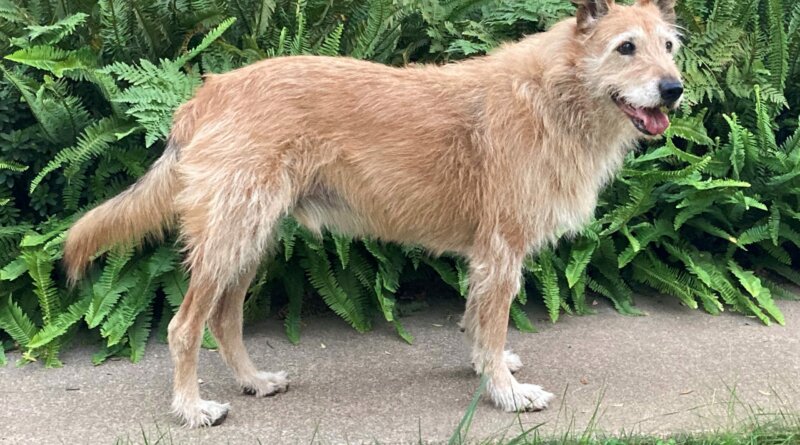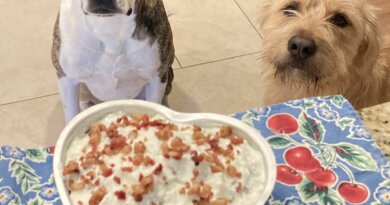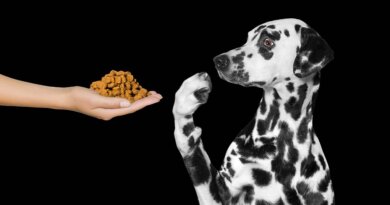Keeping Your Dogs At a Healthy Weight Can Be Tricky
Over the past two years, my senior dog, Otto, has started having trouble maintaining his body mass at a healthy weight. He has had a few health issues that his veterinarians and I are monitoring, but one symptom of his issues has caused him to suffer from a bit of gastric reflux. We have been able to keep his stomach acid in check with a daily medication, but there was a period of months when he just didn’t feel like eating. During that time, I had to tempt his appetite with all sorts of foods, split into many small meals a day, to get him to eat at all. At his lowest, his weight, normally about 70 pounds, dipped all the way down to 63 pounds. He felt ribby and definitely lost muscle mass.
Eventually, the tide turned and Otto started eating again, although it was a challenge to get him back up to his “college” weight of 70 pounds. I can’t give him huge meals – he won’t eat a ton in one sitting – so I often give him three meals a day. He also gets canned food mixed into his dry food at each meal, and eats more than a can a day. I also mix some warm water into his food and stir the canned food in, so he doesn’t pick out the canned food and leave any kibble behind.
One unfortunate side effect of the campaign to get Otto to gain and hold his weight: My younger dog Woody has gained too much weight! Because when he sees the canned food come out, he (quite understandably) wants some, too. I don’t have to, of course, but I stir about a teaspoonful of the canned food into Woody’s kibble, and add warm water to it, so he feels like he’s getting special treatment, too. So, of course, I’ve had to cut back the amount of kibble he gets, just a little bit, to make up for the addition of the fattier canned food.

It’s nuts: Both dogs used to weigh the same amount. To get and keep Otto at 70 pounds, I’ve added nearly an entire can of food to what he gets each day, and have had to reduce Woody’s portion of dry food to make up for the addition of only a teaspoon of canned food, and yet Woody is up to about 73 or 74 pounds.

I know it’s silly to feel as though Woody would judge me for failing to add anything “nice” to his kibble at each meal, and yet, I absolutely see him watching me carefully when I prepare both dogs’ meals. I actually fork the wet food from the cans into the dogs’ bowls with my back blocking his view, so he can’t see how much of the delicious pâté goes into each bowl, and I deliver the food to them separately. Otto eats outside, with his bowl on a stair that’s one step higher than the deck; Woody eats in the house.
Another wrinkle: Since Coronavirus has changed the world, we definitely have been going out less. The lack of walks has likely contributed both to Otto’s loss of muscle mass and Woody’s weight gain.
Also, I give Otto a pill each day hidden in a piece of cheese. Woody, too, lines up and sits politely, looking for his cheese. Those extra calories, too, aren’t helping me maintain his figure!
Have you had this problem before? Trying to keep one dog thin and helping another dog gain weight? Do you have any tips for us?





